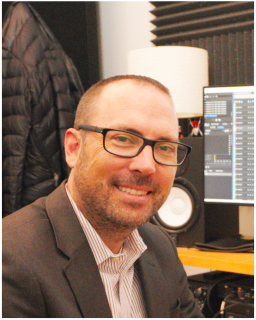Space Exploration Symposium 2019 Schedule
Monday, Oct. 7
Location: Donadeo Centre for Innovation Engineering (DICE), 8-207
Lunch will be provided.
| Student/Industry Talks and Student Booths | 10:00 | Launch Canada: Starting the Inaugural Canadian Rocketry Competition | Adam Trumpour Karina Sapelnikova |
| 10:30 | Revolutionize Space Transportation - Fraction of the cost | Pradeep Dass | |
| 11:00 | INSPIRESat: Being Canada's only contribution to an International Satellite Constellation | Kirtan Dhunnoo | |
| 11:20 | Research, Recovery, and Reasoning: How STARR plans to reach IREC in 2020 | Lochlin King | |
| 11:40 | Jammable kirigami for tunable stiffness in soft robotics | Dan Sameoto | |
| Career Panel | 12:00 | Career Panel: Non-traditional ways to a career in space | Chris Robson Grant Cool Ben Feist |
| Student/Industry Talks and Student Booths | 13:00 | BREAK - Student Booths and Poster Viewing | |
| 13:20 | Northern SPIRIT | Duncan Elliot | |
| 13:40 | Protecting Alberta with the Ex-Alta 2 CubeSat | Katelyn Ball | |
| 14:00 | BREAK - Student Booths and Poster Viewing | ||
| 14:20 | SPEAR: Interdisciplinarity and Planetary Robotics | Andre Ulliac | |
| 14:40 | Space Entrepreneurship in Alberta - Lessons Learned | Chris Robson | |
| 15:00 | Space Medicine and the Space Apps Hackathon | Shankar Jha | |
| 15:20 | BREAK - Student Booths and Poster Viewing | ||
| 16:00 | The Camrose Fireball: The Search is On | Chris Herd | |
| Keynote Speaker | 16:30 | 
Apollo in Real Time - How Apollo History is Helping to Pave the Way for NASA's FutureThis year is the 50th anniversary of the first time humanity set foot upon the Moon. Digitizing the historical material on the Apollo program has been a major undertaking that enables the material to be expressed through new interactive experiences, presented raw in its original glory. Learn how we presented Apollo history using this new concept of "no-narrative" storytelling in both, the IMAX film Apollo 11, and the apolloinrealtime.org interactive website. The historical record of the Apollo Program is being leveraged in new ways to help NASA to plan for the next 30 years of space exploration. See how these visualizations are being applied to modern mission analogs and are contributing to plans for future space exploration. |
|
Location: Centennial Centre for Interdisciplinary Science (CCIS), 1-160
| Reception | 18:00 | Food and drink provided. | |
| Keynote Speaker | 19:00 | 
Public Lecture: Psyche: Journey to a metal worldLindy Elkins-Tanton, Arizona State University, Principal Investigator of the NASA Psyche mission. When our solar system was just an infant, thousands of planetesimals formed in just a few million years. For many, heat from the decay of short-lived radioactive 26Al was trapped, causing cores to differentiate from the silicate mantle. Over the next few tens of millions of years, many planetesimals crossed paths catastrophically. Colliding worlds merged into even larger planets, eventually forming a small number of planetary embryos. Models show that among the accretionary collisions early in the solar system, some destructive "hit and run" impacts strip the silicate mantle from differentiated bodies. This is the leading hypothesis for Psyche's formation: it is a bare planetesimal core. If our observations indicate that it is not a core, Psyche may instead be highly reduced, primordial metal-rich materials that accreted closer to the Sun. In this talk Dr. Elkins-Tanton will introduce what is known and what is hypothesized about Psyche, and discuss how the mission is progressing. |
|